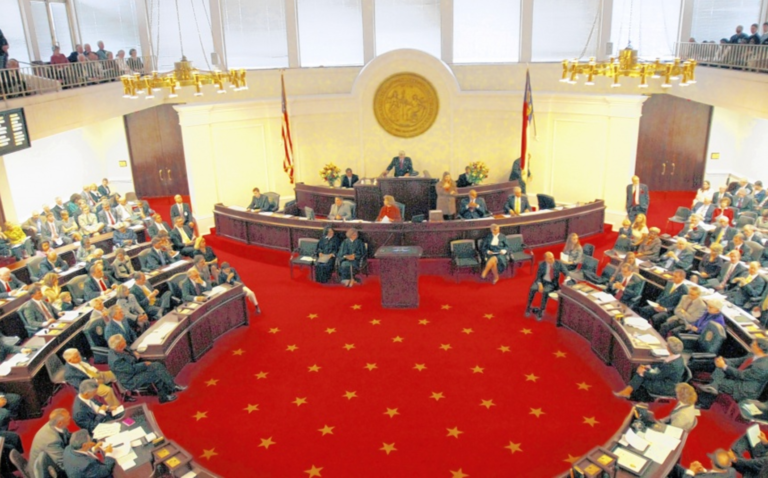
RALEIGH, N.C. (6/11/2020) — N.C. Lawmakers on Thursday passed House Bill 1169, the only COVID-related elections legislation to advance this session.
HB1169 takes important steps to voters and other amid the pandemic, including:
- provides new ways to submit an absentee ballot request, including email, fax, and online portal
- reduces mail-in voting witness requirement from two to one
- gives new authority to counties’ Multi-partisan Assistance Teams (MAT Teams) to help with voter requests
- provides matching state funds for federal grants to expand early voting, buy PPE, rent bigger voting sites, incentive pay for poll workers, process more absentee ballots, etc.
- affords new flexibility to recruit poll workers county-wide rather than within the same precinct
- provides new procedures so voters can track, and election officials can track and process, absentee ballots faster
The bill also contained controversial non-COVID-related provisions, including a provision that would add public assistance identification to the list of IDs that could be used in the state’s now enjoined photo voter ID law.
HB1169 now heads to Gov. Cooper for his signature.
Tomas Lopez, Democracy North Carolina’s Executive Director released the following statement in response to HB1169’s passage, welcoming the bill’s pro-voter provisions and criticizing aspects meant to confuse and burden voters.
“In light of the COVID-19-related election meltdowns we’ve seen in other states, the General Assembly’s passage of House Bill 1169 brings some welcome reforms urgently needed to expand in-person and absentee voting access this fall, but it is not a complete solution. The bill’s common sense provisions, like making it easier to request a mail-in ballot, supporting poll worker recruitment across precincts, and funding the release of critical federal election dollars are important starting points. But the General Assembly also expressly failed to enact measures that are necessary to ensure that no voter — especially Black and brown voters bearing the brunt of the pandemic — is forced to risk their health to cast their ballot. These needs, including changes to voter registration rules and flexibility for counties in how they administer early voting, remain critical.”
###